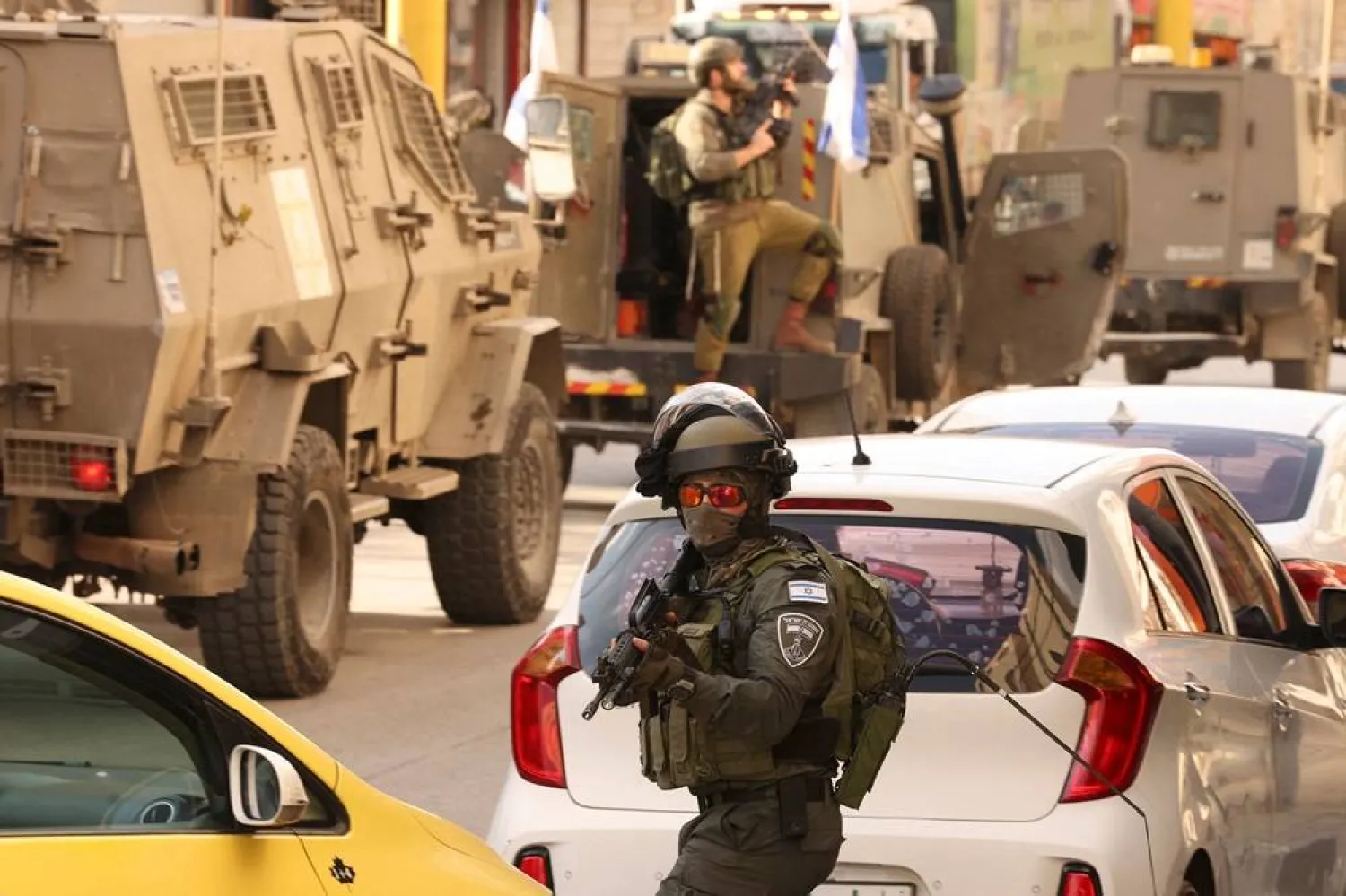Hamza al-Qawasmi was at home in the occupied West Bank city of Hebron last month when Israeli forces stormed in after midnight and told him he was under arrest.
The 27-year-old coffee seller had taken part in marches against the Gaza war. He had been arrested and detained previously for being a member of the Islamic bloc at Hebron University but he said the treatment this time was the worst.
"They put me in the military jeep. That's when the assault began," he told Reuters.
Qawasmi said his captors blindfolded and handcuffed him, took him away, accused him of being an ISIS member, beat him and at some point removed the blindfold so he could see them point their rifles to his head as they threatened to kill him.
The Israeli military did not respond to requests for comment on Qawasmi's case.
Israeli-Palestinian tensions have flared in the West Bank since Palestinian Hamas gunmen rampaged into southern Israel on Oct. 7 and Israel launched a retaliatory assault on blockaded Gaza, killing more than 12,000 people, according to a Palestinian Health Ministry tally in the Hamas-run enclave.
While Gaza's 2.3 million Palestinians have been in focus the last six weeks, the Israeli-occupied West Bank, home to 3 million Palestinians who live among more than half a million Jewish settlers, has been seething for more than 18 months, drawing growing international concern as violence has escalated.
Palestinian detainees and officials say Israel has conducted mass arrests in the occupied West Bank and East Jerusalem and that prisoners were increasingly facing physical assaults and humiliating treatment in Israeli detention facilities.
"Israel today is in the mood of revenge," Ramallah-based Palestinian Prime Minister Mohammad Shtayyeh told Reuters.
Amnesty International said in a Nov. 8 statement that Israel had dramatically increased its use of administrative detention, a form of incarceration without charge or trial.
The Israeli military has said it operates in the West Bank against suspects involved in militant activity. On Friday, it said most of the 1,750 Palestinians it had caught there in recent weeks were associated with the Hamas.
A statement by the Israel Prison Service said that "as part of the war effort" it was imposing tougher imprisonment conditions for Palestinian political prisoners.
The Palestinian Prisoners Society, representing prisoners held by Israel, said Qawasmi was one of more than 2,700 Palestinians arrested in the West Bank since Oct. 7 when Hamas gunmen breached the fence enclosing Gaza and launched an attack in which Israel says 1,200 people were killed and about 240 people were taken hostage.
The number of Palestinians held by Israel has risen to more than 7,800, including some 300 children and 72 women, said Qadura Fares, head of the Palestinian Authority Commission for Prisoners' Affairs. He said the number did not include prisoners from Gaza, which he said Israel refuses to disclose.
At least four Palestinian prisoners have died in Israeli custody in recent weeks, Fares said. He said autopsies showed they were tortured or medically neglected. Hundreds more prisoners were wounded after being severely beaten, their limbs and ribs broken and their bodies bruised, he added.
An Israeli prisons spokesperson said three Palestinian prisoners had died in three different circumstances over the past six weeks and that the incidents were under investigation.
Qawasmi said he was placed in administrative detention in Ofer Prison, where he said the cells were overcrowded. He said of some 70 prisoners he encountered, most had visible bruises and one prisoner who was beaten until his arm was broken was denied medical attention.
Qawasmi said he was released after being held for two weeks. He said prison guards told him his personal belongings including his clothes, confiscated on his arrival, were tossed in the trash and he was made to leave in his undergarments.
PALESTINIANS ACCUSE ISRAELI FORCES OF ILL TREATMENT
A spokesperson for the Israel Prison Service said they had no knowledge of the event described by Qawasmi but that all prisoners and detainees had the right to file complaints which would be examined by the authorities.
"All prisoners in IPS custody are detained according to the provisions of the law," the spokesperson said.
Heba Morayef, Amnesty's regional director for the Middle East and North Africa, cited testimony and video evidence she said pointed to numerous incidents of torture and other ill-treatment by Israeli forces including beatings and deliberate humiliation of Palestinians detained in dire conditions.
In a Nov. 13 video verified by Reuters, masked Israeli soldiers in Hebron are seen beating a Palestinian man while he livestreamed on TikTok. The soldiers were seen forcibly entering his house, kicking him and beating him with their rifles in front of his family as his daughter screamed in panic. The man, Eyad Banat, was released hours later.
The Israeli military said on Tuesday that soldiers detained Banat for preventing them from searching his apartment building for wanted militants, without elaborating on how he was obstructing their activity while he was in his house or whether any militants were found.
It said a preliminary investigation indicated that an "unreasonable amount of force" was used in Banat's arrest and that disciplinary action will be taken by a military commander as the investigation continues. Banat's cousin, Nizar Banat, who was an outspoken critic of the Palestinian Authority, died in custody of the PA security forces in 2021.
Prisons are overseen by far-right National Security Minister Itamar Ben-Gvir, who has long advocated for a crackdown on Palestinian prisoners.
On Tuesday, Ben-Gvir posted a video from a visit to one of the jails where he said Palestinian militants were held in the strictest conditions and where the Israeli national anthem would play on loudspeakers at all times. He said he hoped a bill supporting the death penalty for militants would soon be advanced beyond a preliminary vote in parliament.









